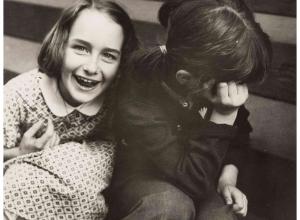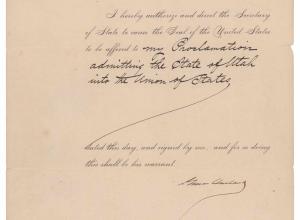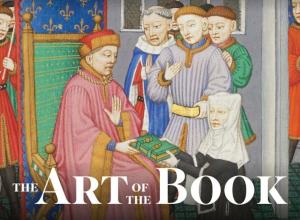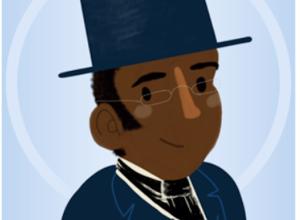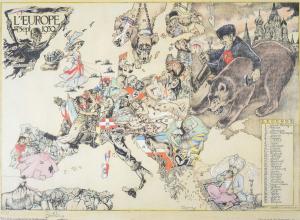September 10, 2012
Peter Harrington to Unveil Lord Byron’s Association Copy of Frankenstein
London, UK — Renowned rare bookseller Peter Harrington is to present to the public the unique first edition presentation copy of Mary Shelley’s Frankenstein (1818), given by her to Lord Byron, with her autograph inscription on the front flyleaf.
This copy of the best known fiction of the Romantic era had lain untouched for more than 50 years in the library of the late Douglas, Lord Jay, economist, Labour politician, and president of the Board of Trade under Harold Wilson. His grandson and keen bibliophile, Sammy, was sorting through his political papers for the archives of the Bodleian Library in Oxford, when he made the discovery.

This copy of the best known fiction of the Romantic era had lain untouched for more than 50 years in the library of the late Douglas, Lord Jay, economist, Labour politician, and president of the Board of Trade under Harold Wilson. His grandson and keen bibliophile, Sammy, was sorting through his political papers for the archives of the Bodleian Library in Oxford, when he made the discovery.

Sammy Jay, 23, says: “I saw the book lying at an angle in the corner of the top shelf. On opening it, I saw the title page, recognised what it was at once and leafed hungrily through the text - it was only when I flicked idly back to the first blank that I saw the inscription in cursive black ink, “To Lord Byron, from the author”.”
At first, Jay thought he was dreaming, but the next day Richard Ovenden, deputy librarian at the Bodleian, came to the house and verified the inscription as being in Mary Shelley’s hand, which is when the reality and the magnitude of the find began to settle in.
The book will be available to view by the public from 26 September 2012 for one week at Peter Harrington’s premises at 100 Fulham Road, Chelsea. A range of literary artefacts to illustrate the contemporary context of this astonishing volume will also be on display.
Peter Harrington’s proprietor Pom Harrington adds, “We don’t always get the chance to celebrate the provenance or the history of the wonderful books we sell. So this is a wonderful opportunity to share this association copy and perhaps the most evocative presentation copy conceivable in all nineteenth-century literature with the world.”
The story of the genesis of Frankenstein is well known to literary scholars. That stormy night in June 1816 at the Villa Diodati on the shores of Lake Geneva, during which a ghost-story writing contest between Byron, the Shelleys, and Byron’s physician Polidori led to the composition of Mary Shelley’s novel, has entered literary history. Not only was the contest itself Byron’s own idea (as Mary recollects in the preface to the third edition), but more generally Byron’s influence as a thinker, a poet and a man played an incalculable role in shaping this most significant work of Romantic fiction.
Written on Mary Shelley’s return to England, the book was published in a small edition of only 500 copies, the publisher giving six copies for her personal use to Mary.
Her husband Percy Shelley sent a copy to Byron by post and wrote on her behalf: “I am commissioned by an old friend of yours to convey ‘Frankenstein’ to you…It has met with considerable success in England; but she bids me say, ‘That she would regard your approbation as a more flattering testimony of its merit.’”
Byron later recommended it to John Murray: “methinks it is a wonderful work for a Girl of nineteen”.
At first, Jay thought he was dreaming, but the next day Richard Ovenden, deputy librarian at the Bodleian, came to the house and verified the inscription as being in Mary Shelley’s hand, which is when the reality and the magnitude of the find began to settle in.
The book will be available to view by the public from 26 September 2012 for one week at Peter Harrington’s premises at 100 Fulham Road, Chelsea. A range of literary artefacts to illustrate the contemporary context of this astonishing volume will also be on display.
Peter Harrington’s proprietor Pom Harrington adds, “We don’t always get the chance to celebrate the provenance or the history of the wonderful books we sell. So this is a wonderful opportunity to share this association copy and perhaps the most evocative presentation copy conceivable in all nineteenth-century literature with the world.”
The story of the genesis of Frankenstein is well known to literary scholars. That stormy night in June 1816 at the Villa Diodati on the shores of Lake Geneva, during which a ghost-story writing contest between Byron, the Shelleys, and Byron’s physician Polidori led to the composition of Mary Shelley’s novel, has entered literary history. Not only was the contest itself Byron’s own idea (as Mary recollects in the preface to the third edition), but more generally Byron’s influence as a thinker, a poet and a man played an incalculable role in shaping this most significant work of Romantic fiction.
Written on Mary Shelley’s return to England, the book was published in a small edition of only 500 copies, the publisher giving six copies for her personal use to Mary.
Her husband Percy Shelley sent a copy to Byron by post and wrote on her behalf: “I am commissioned by an old friend of yours to convey ‘Frankenstein’ to you…It has met with considerable success in England; but she bids me say, ‘That she would regard your approbation as a more flattering testimony of its merit.’”
Byron later recommended it to John Murray: “methinks it is a wonderful work for a Girl of nineteen”.





